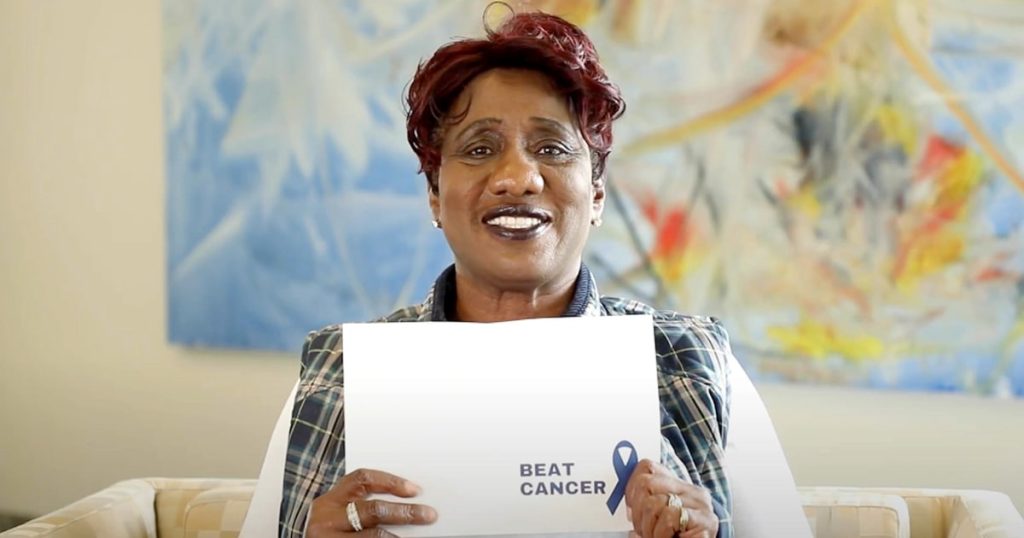Juanita Thomas, a retired housekeeper and grandmother from Omaha, Nebraska, found herself being offered a free colorectal cancer screening kit no fewer than three times while registering a car at her local Department of Motor Vehicles. Initially hesitant, Thomas finally relented and took the test after being reminded of Chadwick Boseman’s death due to colon cancer. To her surprise, the test came back positive for blood in her stool, leading to the discovery and removal of eight polyps during a colonoscopy. Although the polyps were non-cancerous, the procedure provided Thomas with peace of mind and a newfound appreciation for the importance of early cancer detection.
Thomas is just one of the 340 individuals who participated in the BEAT Cancer project, which offers free colorectal cancer screening to underserved communities using the DMV as a platform for outreach. Led by Jungyoon Kim, the study aims to address the racial disparities in colon cancer diagnosis and mortality rates, particularly among Black Americans. Through partnerships with local organizations and the use of DMV data, the project has been able to reach a significant portion of the population in the area, offering free test kits and connecting participants with follow-up care if needed.
The innovative approach of using the DMV as a space for cancer screening outreach has been praised for its potential impact on underserved populations. Scherezade K. Mama, an assistant professor at the University of Texas MD Anderson Cancer Center, commends the project for meeting people where they are and providing them with accessible, free testing options. While challenges remain in ensuring participants follow through with testing and treatment, the personalized approach of the DMV outreach may be more effective than traditional methods of mail-based screening.
Despite initial hesitancy and fears surrounding the results of the screening, Juanita Thomas credits the BEAT Cancer project with providing her with peace of mind and early detection of potential health issues. As the project continues its outreach efforts, there is hope that more individuals will be encouraged to take advantage of the free screening kits and follow-up care options available through the program. By addressing racial disparities in access to medical care and education, initiatives like BEAT Cancer are working to improve outcomes and reduce mortality rates associated with colon cancer.
The success of the BEAT Cancer project has led to plans for further outreach efforts and potential expansion into other health topics in the future. With a focus on continued community engagement and education, the project aims to reach individuals throughout the year, beyond traditional awareness months. By leveraging partnerships with local organizations and utilizing platforms like social media for advertising, the project hopes to increase participation and impact in underserved communities.
As Juanita Thomas looks forward to a polyp-free summer and her next colonoscopy in three years, she encourages others to take advantage of the screening opportunities offered through projects like BEAT Cancer. By raising awareness, providing accessible testing options, and connecting participants with follow-up care, these initiatives have the potential to save lives and improve health outcomes for individuals in underserved communities. Through ongoing support and initiatives, organizations like the Great Plains Colon Cancer Task Force and the Charles Drew Health Center are working to make a difference in the lives of those at risk for colorectal cancer.


